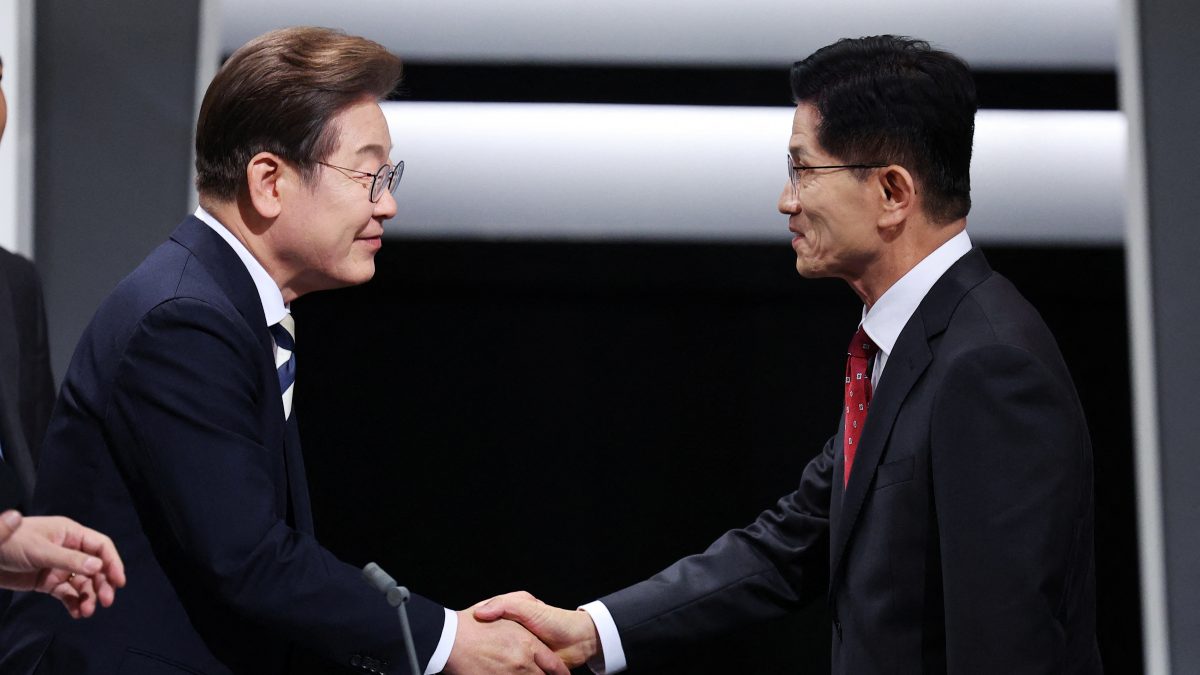As South Koreans prepare to vote in a snap presidential election on June 3, the stakes extend far beyond choosing the country’s next leader.
Following the impeachment of President Yoon Suk-yeol in April, after his unconstitutional declaration of martial law, the election has become a referendum on the future of South Korea’s democracy.
Political stability
Constitutional reform is at the heart of South Korea’s political debate. Both leading presidential candidates, Lee Jae-myung of the Democratic Party and Kim Moon-soo of the People Power Party, support replacing the current single five-year term with two four-year terms to strengthen executive accountability.
The urgency follows President Yoon Suk-yeol’s impeachment after he declared martial law, citing “anti-state forces” in the opposition-controlled parliament. Widely seen as executive overreach, the move has sparked calls for stronger checks on presidential power.
Lee Jae-myung has proposed further reforms, including a requirement for parliamentary approval within 24 hours of any martial law declaration, to ensure democratic oversight.
Economic growth and stability
South Korea’s economy is grappling with rapid automation, the rise of artificial intelligence, and a widening gap between high-skilled and low-skilled jobs.
These trends have destabilized the middle class, particularly among the youth, leading to mounting concerns over job security and economic opportunity.
With high youth unemployment and growing discontent among job seekers, especially those avoiding low-paid positions in small and medium-sized enterprises, the economy is a top concern for voters.
Impact Shorts
More ShortsBoth major candidates have pledged to revitalize the economy but differ on strategies—Lee favours innovation and inclusive growth, while Kim emphasizes business-led expansion.
Relations with North Korea
The next president will be tasked with recalibrating the nation’s long-standing policy on North Korea. Lee advocates for a more moderate approach, including diplomatic engagement and dialogue with Pyongyang.
He also supports improving ties with China and Russia, while maintaining a stable alliance with the United States.
By contrast, conservative voices call for a firmer stance toward the North, focusing on deterrence and military readiness.
How the next president approaches inter-Korean relations could shape peace and stability on the peninsula.
Regional and geopolitical tensions
South Korea finds itself navigating increasingly complex geopolitical dynamics amid rising tensions between the US and China.
Strategic decisions on trade, security, and diplomacy, particularly regarding military cooperation and semiconductor exports, are under global scrutiny.
The election will likely determine whether South Korea leans more heavily into its alliance with Washington or seeks a more balanced diplomatic approach in the region.
Yoon’s relationship between Japan and South Korea was reasonably peaceful and forward-looking, in contrast to his Democratic Party predecessor, Moon Jae-in.
As the current campaigns come to an end, Lee, also from the Democratic Party, has a high chance of becoming the next president. Tokyo is concerned that under Lee, relations may worsen once further, particularly if the new government emphasises the horrific history of Japan’s colonial control and wartime crimes.
Social divisions
Cultural shifts and the growing visibility of gender equality movements have led to stark generational and ideological divides.
Young men, frustrated by job competition and mandatory military service, have shown increasing support for conservative candidates and anti-feminist rhetoric.
Meanwhile, young women are turning toward progressive politics, supporting gender reform and social justice.
These divergent views have formed opposing political coalitions, making gender politics a defining factor in the election. The divide has already reshaped the political landscape, including the historic election of a record number of female lawmakers in 2024.
Demographic challenges
South Korea’s aging population and record-low fertility rate, the lowest in the OECD, have exposed major shortcomings in the country’s welfare and care systems. Women, who often carry the burden of unpaid elder and child care, are demanding policy solutions that support work-life balance and gender equity.
Candidates are under pressure to address these systemic issues, which are key to long-term social and economic sustainability.
The real question in this election is not just who wins, but what kind of democracy South Korea will choose for its future. Will the country continue to concentrate power in the presidency, or will new, inclusive coalitions reshape the democratic framework?
As South Korea stands at a political crossroads, the June 3 election could define not only the next presidency, but the very fabric of its democracy.
)